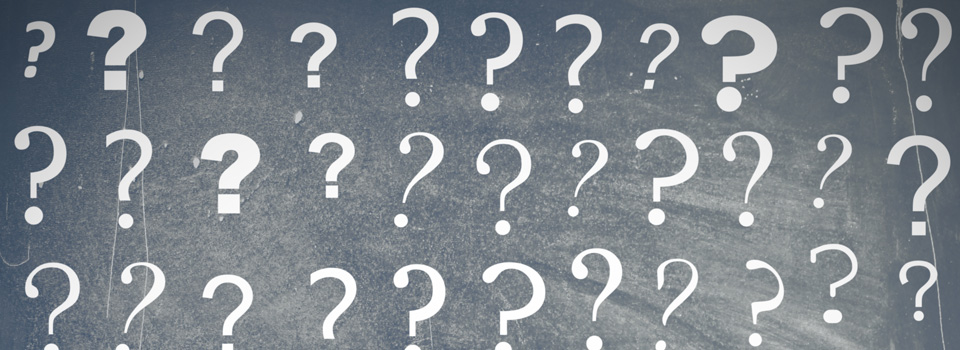
Among the flood of commentary surrounding highly-publicized suicides, I always grimace at the naïve and ignorant statements made by those who haven’t been touched by mental illness or a loss of this nature. Reading or hearing things like, “what a selfish act,” are extremely hurtful and perpetuate the unfortunate stigma facing survivors. It also demonstrates a lack of understanding of the impact of mental illness on those who are struggling. It’s so easy for people to make snap judgments or statements and continue to move on in their day without realizing how wrong they are. I am certainly not a researched expert on the topic, but I can speak emotionally as a survivor on 5 myths about suicide I’ve observed since losing my dad.
Myth #1 – People who complete suicide acted “cowardly.”
Elizabeth Hawksworth summarized it best in her blog post, “The Death of Robin Williams, and What Suicide Isn’t.” “Suicide is not a weak decision. It is a decision that takes an incredible amount of strength to make, actually. Someone isn’t weak if they end their life. They are desperate. There is a difference. It’s okay to feel angry at the person for dying. It’s okay to question, to rail against the forces that caused this. But it isn’t weakness. Mental illness isn’t weakness. It’s a disease, a pervasive, sometimes awful disease. The person doesn’t deserve anger and skepticism forever. They deserve compassion. Their family deserves compassion.”
These individuals thought that dying and their horrific method of death was actually a lesser evil and less painless than living through their depression, anxiety, etc. I have heard many survivors share that their loved ones left notes trying to convey this message. Their subsequent actions appeared to be perfectly rational to them, even if we can’t possibly begin to comprehend it. We also have to remember that a major contributor to this is the fact that many people who commit suicide are experiencing mental illness and therefore, may not be thinking in a completely rational manner. It’s unfair to label someone a “coward.” Would we use such harsh language towards people who are experiencing other disorders or illnesses? No.
Myth #2 – People who complete suicide are selfish.
Similar to above, this is one of the most common statements I hear in the aftermath of a suicide. Unsuspecting people think that someone was only thinking of themselves and their desire to end their problems and not about the impact their departure would have on their families. This is also untrue. Digging deeper, you will hear just as many survivors share about how their loved ones (unsettlingly) did everything they could to ensure their families and friends would be supported after their death. From opening financial accounts to getting their affairs in order to leaving notes explaining the reasons behind their decision, they took the time in the darkest hours of their lives to give this last bit of themselves to their families. In my case, as well as in others’ the victim went out of their way to let people know how much they loved their family and friends and actually thought they were acting selflessly by “removing” the burden of their problems from their families’ lives. Again, an explanation they thought was perfectly rational at the time. I wouldn’t be surprised if the families they were leaving behind were actually the last thought that crossed their minds.
Not everyone who completes suicide takes these measures, of course. But, regardless, I think most survivors will agree that “selfish” is not a term that crossed their minds following the loss.
Myth #3 – Suicide doesn’t or would never happen in a family like mine.
I can’t think of any survivors I’ve met who THOUGHT suicide was something they’d ever experience in their lives. As one of those previously ignorant people in society, I heard the word suicide and immediately thought “crazy person,” or like I had some kind of idea of the types of homes in which this would happen. Suicide doesn’t bypass any race, gender, age, economic status or geographic location. Doctors, pharmacists, lawyers, police officers, military personnel, teachers, school-aged kids and housewives complete suicide. It happens in the house next door and has likely touched someone in your workplace.
It can even happen to people who say they would never do it. I thought I was exempt. I remember being in elementary or middle school and being sat down at our kitchen table – by my DAD – for a talk about suicide. Prompted by an article about a child who killed himself in our town, he reminded us that “there’s nothing so wrong in life that you can’t come to your mother or me for help. Suicide is not the way out.” Twenty or so years later, it happened. Through counseling, I have learned that this might have been a lot easier for my dad to say back then, before the grips of depression consumed him and the thought of living became so painful. Like me, he was also probably on the previously naiïve side of the fence.
Myth #4 – I would know if my loved one was considering suicide; they’d tell me.
See #3, this is not necessarily the case. True, some individuals let their families know they are having suicidal thoughts or have made attempts in the past. However, I have heard just as many people say that after getting help and observing their loved one turn a positive corner that they were shocked to become a survivor shortly thereafter. Unfortunately, it is commonly the case that once someone has come to the decision that suicide is an option they a) become almost euphorically happy and appear to be at-ease (because they finally have a solution), which can throw family members off or b) they go out of their way to prevent anyone from discovering their plans so that they cannot be stopped.
I still feel confident in saying that our family had no obvious warning signs that would have led me to believe this was an option my dad was considering, especially since he told us we shouldn’t take this route. He appeared to be a little preoccupied and bummed out and we tried to prod him to talk about it or even get help. He brushed us off and thanked us for the suggestions. I thought that was doing enough. It wasn’t. We were absolutely blindsided. He got up that day, went about his usual routine and didn’t come home – as do many people. Survivors are shocked at the normalcy of a loved one going off to have a last meal or run a typical errand just before taking their lives. Family members and friends should be much more hyper-vigilant about checking in on loved ones and seeing through the support and professional care that is needed. I am still filled with woulda, shoulda, coulda’s.
Myth #5 – I “checked in” and so-and-so seems perfectly happy based on what they’re sharing on Facebook.
Wrong. Today’s social media-obsessed culture makes it all too easy for people to self-censor their lives. We post happy vacation photos, share about the births of our children and note various job and weight-loss accomplishments. What people are not sharing about are the battles with job-induced anxiety, the post-partum depression following that birth, the lack of real connection they feel to other human beings, the inability to kick an addiction for good or the defeat they feel when they can’t keep up with the posts of their social media “Jones.’”
I’m always a little disheartened when I get together with a friend or colleague and learn after some questioning that life for them isn’t truly as great as it appears online. I’m guilty of this myself. Why would I want to put out there anything negative? No one wants to hear that.
We must get over this. Your families and friends DO want and need to hear this. No, not via a public status update, but through a phone call, an email or an in-person conversation. We owe it to ourselves and those we care about to do more thorough and genuine checking in – and also to turn to others for help instead of hiding behind social profiles.
So, What Can I Do?
For those who have not been touched by suicide – and even for those who have – I encourage you to take time to read some tremendously informative and helpful information provided by the American Foundation for Suicide Prevention:
- Myth vs. Fact about Suicide
- Suicide Risk Factors and Warning Signs
- Frequently Asked Questions about Suicide (with Facts)
- Facts and Figures about Suicide
- Where you or a loved one can turn for help
Please join our conversation on Facebook. You can also receive more regular updates from us by subscribing to Our Side of Suicide by entering your email address along the right-hand column of the website. You may unsubscribe at any time.



THANK YOU FOR WRITING THIS!!!!!!! Im sharing with every one I know. My husband has severe mental illness and I just lost a niece to suicide in June. And this post helped so much. May God bless you and your family!
Thank you, Mibi. My feathers get so ruffled with people’s ignorant comments. I’m sorry for your loss.
It will be 3 years on 11-23-2011 that my daughter died by suicide. She is one of those people who hid any thoughts of suicide from public view. I along with everyone else who knew her were blindsided by her suicide. Even the medical examiner was just as baffled about it as we all were. He said there was nothing about her or her home that fit the “profile” of someone even contemplating suicide much less going through with it. She didn’t have a substance abuse problem either. The last thing anybody would say about her is being selfish because she wasn’t in life and she wasn’t being selfish or a coward when she became a victim of suicide. I too have a big problem when I hear of people calling the person selfish or a coward or that they are going to hell because they “committed” suicide. I’m glad they are ignorant only to the point of not having to experience the loss to suicide personally but at the same time their ignorance angers me because they believe all the negative comments they hear which doesn’t help with the stigma attached to mental illness and suicide.
Thank you so much for writing this. I have been defending my mother’s choice for almost 18 years. And by defending I mean I have been telling people it was not because she was cowardly or selfish, she was sick and hurt. I compare it to smoking, which can give us cancer, yet people still smoke, and I see this as a form of suicide. My heart goes out to you and then rest of us survivors.
I couldn’t agree more, Melissa. Unfortunately, until you’ve experiencdd it, I’m afraid these are sentiments most non-survivors have. We are committed to righting these wrongs.
My son’s death a week ago was ruled a suicide by the investigating bodies. My devastation is absolute, absolute. I never knew he was suffering from depression, et al. I visited the scene from which he allegedly jumped nine floors to his death, and was horrified that one could be “brave” enough to have climbed over those guard rails: I was terrified by my proverbial altophobia.
Thanks for this magnificent article: my “absolute, absolute devastation” has dropped a notch to “absolute devastation”. Peace and Love.
Paul – I am terribly sorry for the loss of your son. Even after years of grieving, I think we will all still carry with us that feeling of absolute devastation. This just doesn’t make sense. I’m not sure if you saw our newest post, but a mother recently wrote about the loss of her son. I wish you strength and comfort in the days ahead.
This. So much this. Yes. Thank you.
I lost my brother to suicide in 2013. He made many attempts before and thankfully failed. However this time he didn’t and died by hanging himself . He was on medication for bipolar disorder and tried to get help. The mental health system is poor. He went to the hospital with suicidal thoughts on a Wednesday evening, met with crisis intervention, discharged Thursday morning without the family being called, and took his life on Friday night. He was single, financially stable, took great care of himself, and loved spending time with the family. He was not a selfish person. We hurt every day and miss him so much.
Aww that is so very sad and I too can relate exactly to what you have written. My younger brother too had attempted suicide before finally succeeding last Oct 2015. He was so handsome, great income, very sporty and great friends…the world was truly his oyster and he gave it all up. He too suffered from Bi Polar but was also born with severe asthma and lived daily on his inhaler… Add to his bi polar and asthma inhaler cigarettes and alcohol along with a little dabbling in drugs and it was always going to end badly. All of that combined was like a suicide cocktail …a way of life my brother readily lived. The sad reality was that his genetics causing his bi polar forced him to take medication he hated because it changed him in a way he could not function as the sporty out going happy go lucky person he was…so he refused to take it and probably tried his own alternatives that I believe had an even worse impact on his life.
I still think it is too late for many folks. As a professional black woman, I often get depressed and cannot come out of it. Yes, I have used the tools that are available to me through medication, psychotherapy and by surrounding myself with people to drown out the pain. But it has not worked.
I have cried for help a long time ago.
I have tried to help others for so long that I am exhausted.
I am tired of the blocks in business, in my family and in life.
In Southern Maryland…no exposure no hope therefore no help
Please know you are in my thoughts. I hope you continue to find hope and peace in all those who surround, love and root for you every day.
We lost our son to suicide three years ago. He suffered from bipolar illness. He had been going downhill for much of the year. He had been hospitalized multiple times. He had attempted suiçide multiple times.
I loved him and in many ways were kindred souls. He loved snow skiing, we had season passes for many years. He loved sailing and we would take the boat out multiple times a week. I had a sailboat that we took out as May days as we could. I was in a serious motor vehicle accident spending moths in the hospital and the rest of the year in a brain rehab unit. Our son was already in a home/safe house for seriously depressed people. My wife would take me to visit him and he was definitely not himself. He was very sad with no future positive views. We took him home one weekend, as part of my therapy I take a one hour nap. When I woke up I called for him with no answer. My wife was also looking for him and discovered hi in the basement. He had taken his life. We were in shock for days, we arranged a funeral and memorial.
The pain lives on and I pray to him nightly. The ache stays but it is possible to ski, bicycle and other activities we used to enjoy. I look forward to a happy life but will never forget.
Aww that’s a sad reality. So many bi polar sufferers just can’t find it in themselves to fight that condition like my brother. I often wonder what it’s like to be a victim of Bi Polar just so I can feel what it is that is needed by these sufferers. What I firmly believe is that victims of Bi Polar have a very pure heart and it’s important for us all to be very careful of our verbal communications because they do not take to any negative conversation at all. They’re very kind sensitive souls who more often than not don’t know how to say ” no” when asked to do anything instead they will say ” yes” to everything not realising it is neither physically or emotionally possible to take on so much…therefore running themselves down.
I lost my husband to suicide 11 months ago. Can hardly believe it’s been a year without him. He was a wonderful father and husband and had a promising career. I remember thinking in the weeks before he passed that we had a family that was dialed in. My boys had two parents who volunteered time at school and sports. We valued education, the arts and hard work, etc. I never knew my husband was struggling with anything so dark so deeply and secretly to the point that he lost all hope or determined that we would be better off without him. I heard comments about him being selfish and weak. Some coming not even 24 hours after his death from good friends who were there to support me. It was hurtful then and even more hurtful now that I’m not so raw and look back on that time. Those weren’t the only opinions people have made known to me either about my husband’s choice to take his life. Every time I hear these things I don’t really know what to say or how to say it. I wish I could say what I think. That there is no way that you are going to to get me to think or feel that my husband was anything other that the beautiful family man that he was. They would never say these things to me if he were alive. Why would they think it’s ok to say them when he is gone.? When there are no answers? When we are in such terrible pain?